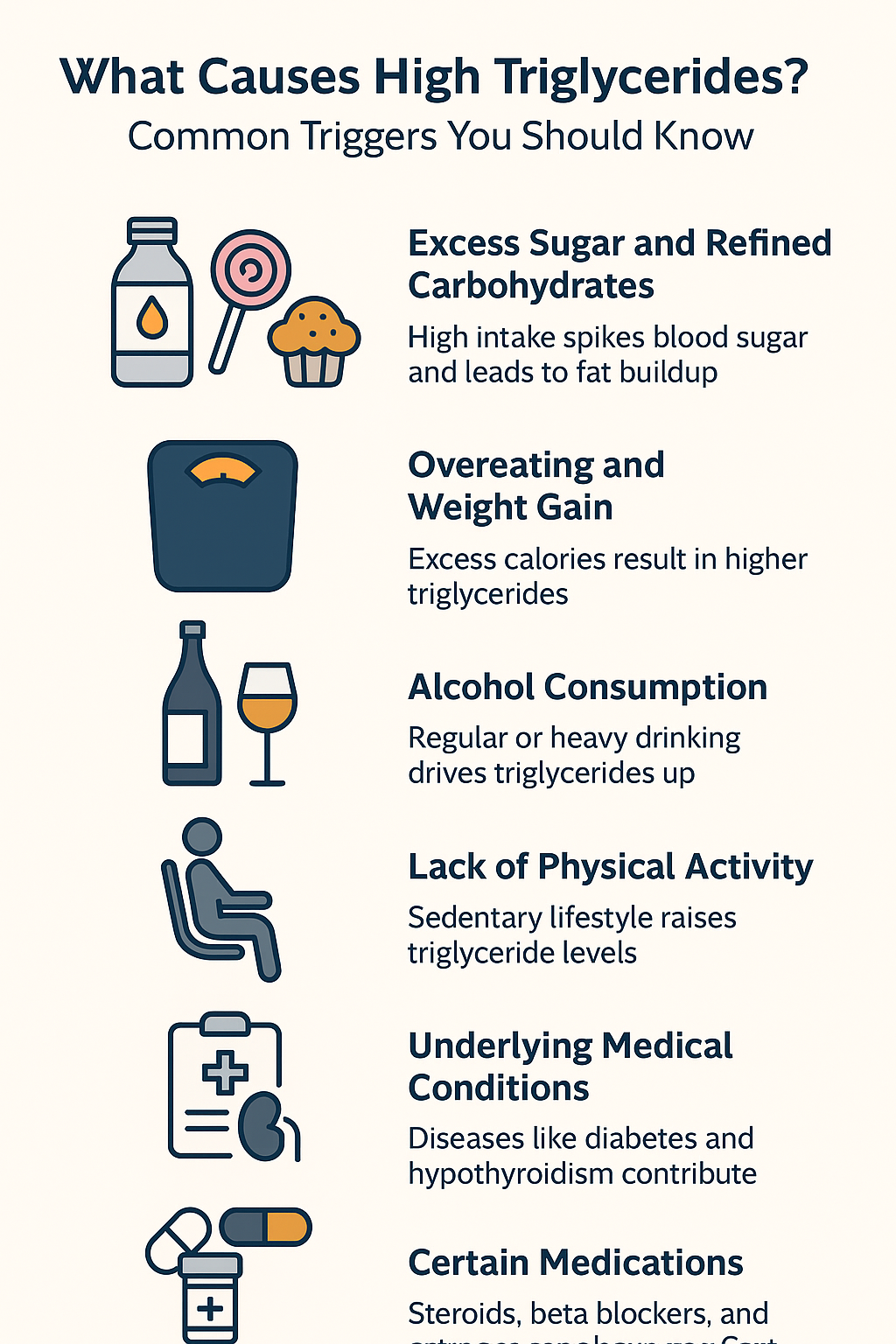What Causes High Triglycerides? Common Triggers You Should Know

Understanding Triglycerides
Triglycerides are a type of fat (lipid) found in your blood. After you eat, your body converts any calories it doesn’t need to use right away into triglycerides. These fats are stored in your fat cells and later released for energy between meals. While essential for energy storage, excess triglycerides can increase the risk of heart disease and other metabolic disorders.
Key Causes of High Triglycerides
1. Excess Sugar and Refined Carbohydrates
A high intake of sugary beverages, desserts, and white bread spikes blood sugar levels and leads to fat buildup in the liver, contributing to elevated triglycerides.
Tip: Reduce consumption of soda, candy, and processed snacks.
2. Overeating and Weight Gain
Consuming more calories than your body needs—especially from unhealthy fats—results in weight gain, which directly increases triglyceride levels.
Tip: Focus on balanced portions and whole, nutrient-dense foods.
3. Alcohol Consumption
Alcohol is metabolized by the liver and rapidly turned into triglycerides. Regular or heavy drinking is a common driver of hypertriglyceridemia.
Tip: Limit alcohol to occasional or moderate use.
4. Lack of Physical Activity
A sedentary lifestyle lowers HDL (good) cholesterol and inhibits the body’s ability to burn fat, raising triglyceride levels over time.
Tip: Aim for at least 30 minutes of physical activity most days.
5. Underlying Medical Conditions
Diseases such as type 2 diabetes, hypothyroidism, kidney disease, and liver conditions often contribute to elevated triglycerides.
Tip: Regular check-ups can help detect and manage these conditions early.
6. Certain Medications
Drugs like steroids, beta-blockers, diuretics, and oral estrogen may also increase triglyceride levels as a side effect.
Tip: Discuss alternatives with your doctor if you suspect a medication is affecting your lipid profile.
Final Thoughts
Managing high triglycerides starts with dietary improvements, consistent exercise, and medical monitoring. It’s not just about avoiding fats—it's about creating a sustainable, heart-healthy lifestyle.



